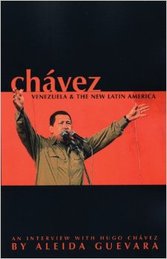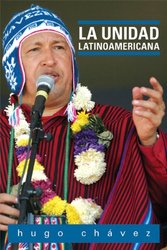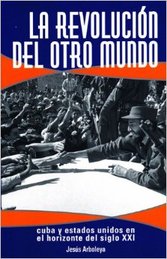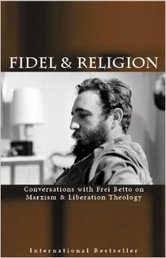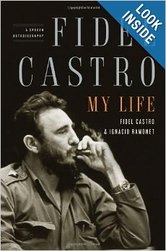International Conference on Political Science from the South
International Philosophy Symposium
Havana, Cuba
November 13-17, 2017
The Cuban Society of Philosophical Research and
the Division of Philosophy and History of the University of Havana
announce
the Twentieth International Conference, “Political Science from the South,”
to be held in Havana, Cuba from November 13 to November 17, 2017.
The conference is dedicated to the 100th anniversary of the October Revolution
and to Comandante en Jefe Fidel Castro Ruz.
The conference will include a special Symposium on Philosophy.
The conference will be held at the
Postgraduate Residence of the Ministry of Public Health
Linea and I Street, Vedado, Plaza de la Revolución, City of Havana
International Philosophy Symposium
Havana, Cuba
November 13-17, 2017
The Cuban Society of Philosophical Research and
the Division of Philosophy and History of the University of Havana
announce
the Twentieth International Conference, “Political Science from the South,”
to be held in Havana, Cuba from November 13 to November 17, 2017.
The conference is dedicated to the 100th anniversary of the October Revolution
and to Comandante en Jefe Fidel Castro Ruz.
The conference will include a special Symposium on Philosophy.
The conference will be held at the
Postgraduate Residence of the Ministry of Public Health
Linea and I Street, Vedado, Plaza de la Revolución, City of Havana
The conference is being organized by Cuban and international professors affiliated with the Division of Philosophy and History of the University of Havana and with Dr. Thalía Fung, Head of the School of “Political Science from the South” of the University of Havana. The “Political Science from the South” is a transdisciplinary initiative, including scholars in political science, economics, history, philosophy, anthropology, and sociology. It seeks to develop an analysis of human history and political dynamics from the perspective of the global South, endeavoring to develop insights that are relevant to political strategies of the nations and social movements of the Third World.
Papers can be presented in English or Spanish. The conference will be bilingual; simultaneous or consecutive translation will be provided.
Paper proposals (in English or Spanish), including a paper title and a summary from 250 to 450 words, should be sent by October 1, 2017 to Charles McKelvey ([email protected]). Please send the abstract in a Microsoft Word document, with your name, position, institutional affiliation, city, country, and E-mail address placed at the top of the page. Paper proposals sent prior to October 1 will be evaluated by the Organizing Committee as they are received, and a decision will be sent promptly.
Papers on the following themes can be included:
- Political Science and the October Revolution: The political repercussions of the October Revolution in the world; the political thought of Lenin; feminism and the October Revolution; political parties after the October Revolution; communist parties in the world; new subjects and actors since the October Revolution; relations between state and civil society since the October Revolution; current dynamics in the political system of the nation-state; all themes of relevance to the Russian Revolution.
- The philosophical legacy of the October Revolution and its repercussions in the world, Latin America and Cuba: new currents in political philosophy; political philosophy and the problems of the world today; the social formation of the man and the woman in the transitional society; the role of youth in the formation of the new society.
- The political thought of the South: the political thought of Fidel Castro; the perspective of the South in the ex-colonized countries; the political thought of Mao Zedong; the political thought of Ho Chi Minh and the Doi Moi policy of Vietnam; the contributions of the Bolivarian Revolution to the construction of socialism; the contributions of Evo Morales, Inacio “Lula” da Silva, and Rafael Correa to contemporary political theory; the contributions of José Martí and the Cuban Revolution to political theory.
- Socialism for the Twenty-First Century: the plurality of ways to socialism; political actors and the search for coherence; socialism in Venezuela; culture and political socialization; the role of the media in political socialization; Latin American and Caribbean regional integration; the role of political elites in Latin America; the imperialist counteroffensive in Latin America; the history and mechanisms of corruption.
- Social movements of the North; the perspective of the South in the process of social changes in the North.
- The conflict between humanity and nature: the environmental thought of progressive world leaders; nanotechnology and biotechnology; arms of mass destruction.
- Philosophy, culture and education: emancipation versus alienation; the culture of war; integrality; transdisciplinary perspectives; socialization of new values.
Papers on other relevant themes can be included.
The Symposium of Philosophy will include the following themes:
- Problems of the philosophy of education and its present challenges; challenges confronting Cuban education today; the philosophy of education in the thought of José Martí.
- Epistemology: the essence and functions of philosophy today; culture, philosophy and science; science and technology today; the significance of atomic particles for scientific and philosophical knowledge.
- Political philosophy: the essence of political philosophy today; political philosophy and the problems of the world today; policy and law in the world today; policy and human rights; the public and the private spheres in today’s society; civil society and the state; political philosophy and its role in scientific knowledge.
- The environmental problem: the biomedical revolution; environmental problems and their philosophical implications; bioethics and the relation between bioethics and philosophy.
Papers on other relevant themes can be included.
Registration fees are 200 Cuban Convertible Pesos for participants from the United States, Canada and Western Europe; and 120 Cuban Convertible Pesos for participants from Latin America, the Caribbean, Eastern Europe, Asia, and Africa. Undergraduate students are provided a 50% discount. In addition to accreditation in the conferences, the fees include translation services, a closing reception/dinner, and refreshments at the conferences.
Anyone interested in the conference should contact Charles McKelvey at [email protected].
Participants and/or their institutions are responsible for payment for airlines, hotel lodging, and meals. For more information on travel arrangements, contact Charles McKelvey ([email protected]).
Basic Preliminary Program
Monday, November 13
9:00-12:00 Conference Registration, Faculty of Philosophy & History, University of Havana.
1:30-4:30 Guided Tour of Museum of the Revolution.
Tuesday, November 14
9:00-12:00 Political Science from the South: Interchange with Cuban historians, social scientists and philosophers of the Cuban Society of Philosophical Research.
Wednesday, November 15
9:00-4:00 International Conference on “Political Science from the South.”
Thursday, November 16
9:00-1:30 International Conference on “Political Science from the South.”
2:30-4:00 Celebration of the International Day of Philosophy in the Aula Magna of the University of Havana.
Friday, November 17
9:00-4:00 International Conference on “Political Science from the South.”
4:30 Closing ceremony
Organizing Committee: Dra. Thalía Fung Riverón, President of the Cuban Philosophical Society; Dr. Vicente Maciñeira, Executive Secretary; Dra. Elsie Plain Rad-Cliff, Vice President; Dra. Laubel Pimentel Ramos, Academic Secretary; Dra. Lissette Mendoza Portales, Vice-President; Dra. Nancy López Díaz, Vice-President; Dra. Magda Bauta Solés, Secretary of Public Relations; Alberto González, Secretary of Communication; Pedro Julio Miranda, Secretary of Finances; Helena Uema (Brazil); Dr. Nelson Fred (Puerto Rico); Dr. Rigoberto Pupo (México); Dr. Jorge Valmaseda (Mexico); Dr. Victorino Barrios (Mexico); Dr. Hugo Cornejo (Mexico); Dr. Charles McKelvey (United States of America).
Papers can be presented in English or Spanish. The conference will be bilingual; simultaneous or consecutive translation will be provided.
Paper proposals (in English or Spanish), including a paper title and a summary from 250 to 450 words, should be sent by October 1, 2017 to Charles McKelvey ([email protected]). Please send the abstract in a Microsoft Word document, with your name, position, institutional affiliation, city, country, and E-mail address placed at the top of the page. Paper proposals sent prior to October 1 will be evaluated by the Organizing Committee as they are received, and a decision will be sent promptly.
Papers on the following themes can be included:
- Political Science and the October Revolution: The political repercussions of the October Revolution in the world; the political thought of Lenin; feminism and the October Revolution; political parties after the October Revolution; communist parties in the world; new subjects and actors since the October Revolution; relations between state and civil society since the October Revolution; current dynamics in the political system of the nation-state; all themes of relevance to the Russian Revolution.
- The philosophical legacy of the October Revolution and its repercussions in the world, Latin America and Cuba: new currents in political philosophy; political philosophy and the problems of the world today; the social formation of the man and the woman in the transitional society; the role of youth in the formation of the new society.
- The political thought of the South: the political thought of Fidel Castro; the perspective of the South in the ex-colonized countries; the political thought of Mao Zedong; the political thought of Ho Chi Minh and the Doi Moi policy of Vietnam; the contributions of the Bolivarian Revolution to the construction of socialism; the contributions of Evo Morales, Inacio “Lula” da Silva, and Rafael Correa to contemporary political theory; the contributions of José Martí and the Cuban Revolution to political theory.
- Socialism for the Twenty-First Century: the plurality of ways to socialism; political actors and the search for coherence; socialism in Venezuela; culture and political socialization; the role of the media in political socialization; Latin American and Caribbean regional integration; the role of political elites in Latin America; the imperialist counteroffensive in Latin America; the history and mechanisms of corruption.
- Social movements of the North; the perspective of the South in the process of social changes in the North.
- The conflict between humanity and nature: the environmental thought of progressive world leaders; nanotechnology and biotechnology; arms of mass destruction.
- Philosophy, culture and education: emancipation versus alienation; the culture of war; integrality; transdisciplinary perspectives; socialization of new values.
Papers on other relevant themes can be included.
The Symposium of Philosophy will include the following themes:
- Problems of the philosophy of education and its present challenges; challenges confronting Cuban education today; the philosophy of education in the thought of José Martí.
- Epistemology: the essence and functions of philosophy today; culture, philosophy and science; science and technology today; the significance of atomic particles for scientific and philosophical knowledge.
- Political philosophy: the essence of political philosophy today; political philosophy and the problems of the world today; policy and law in the world today; policy and human rights; the public and the private spheres in today’s society; civil society and the state; political philosophy and its role in scientific knowledge.
- The environmental problem: the biomedical revolution; environmental problems and their philosophical implications; bioethics and the relation between bioethics and philosophy.
Papers on other relevant themes can be included.
Registration fees are 200 Cuban Convertible Pesos for participants from the United States, Canada and Western Europe; and 120 Cuban Convertible Pesos for participants from Latin America, the Caribbean, Eastern Europe, Asia, and Africa. Undergraduate students are provided a 50% discount. In addition to accreditation in the conferences, the fees include translation services, a closing reception/dinner, and refreshments at the conferences.
Anyone interested in the conference should contact Charles McKelvey at [email protected].
Participants and/or their institutions are responsible for payment for airlines, hotel lodging, and meals. For more information on travel arrangements, contact Charles McKelvey ([email protected]).
Basic Preliminary Program
Monday, November 13
9:00-12:00 Conference Registration, Faculty of Philosophy & History, University of Havana.
1:30-4:30 Guided Tour of Museum of the Revolution.
Tuesday, November 14
9:00-12:00 Political Science from the South: Interchange with Cuban historians, social scientists and philosophers of the Cuban Society of Philosophical Research.
Wednesday, November 15
9:00-4:00 International Conference on “Political Science from the South.”
Thursday, November 16
9:00-1:30 International Conference on “Political Science from the South.”
2:30-4:00 Celebration of the International Day of Philosophy in the Aula Magna of the University of Havana.
Friday, November 17
9:00-4:00 International Conference on “Political Science from the South.”
4:30 Closing ceremony
Organizing Committee: Dra. Thalía Fung Riverón, President of the Cuban Philosophical Society; Dr. Vicente Maciñeira, Executive Secretary; Dra. Elsie Plain Rad-Cliff, Vice President; Dra. Laubel Pimentel Ramos, Academic Secretary; Dra. Lissette Mendoza Portales, Vice-President; Dra. Nancy López Díaz, Vice-President; Dra. Magda Bauta Solés, Secretary of Public Relations; Alberto González, Secretary of Communication; Pedro Julio Miranda, Secretary of Finances; Helena Uema (Brazil); Dr. Nelson Fred (Puerto Rico); Dr. Rigoberto Pupo (México); Dr. Jorge Valmaseda (Mexico); Dr. Victorino Barrios (Mexico); Dr. Hugo Cornejo (Mexico); Dr. Charles McKelvey (United States of America).

